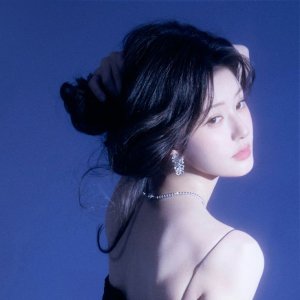Cette critique peut contenir des spoilers
A very much highs and lows based drama
Only for Love is your classic CEO drama, complete with its share of highs and lows, classic clichés, and a blend of both familiar and unique elements. Reading the novel before fueled my anticipation for the drama, intensified by the cast and behind-the-scenes photos. After seeing the length of the drama (36 episodes), I was convinced that additional content was necessary to fill the narrative, a decision that occasionally led to dragging plotlines, saturated with an excess of frustrating misunderstandings, particularly exacerbated by overused phone-call scenarios (please silence those phones).
Despite these occasional pacing issues, the final six episodes managed to redeem the moments of narrative sluggishness, delivering a satisfying viewing experience.
The dynamic between the female and male leads mirrored the novel, with added nuances and deviations, particularly in the later episodes. The uncle's misunderstanding plotline added a humorous twist, contributing to the drama's distinctiveness within its genre.
While the main couple's relationship maintained its novel counterpart, the side characters underwent substantial narrative expansion, at times overwhelming the story with too many subplots. The potential of the two main side couples, Bi Ruoshan and Guan Ji, as well as Qin Shiyue and Yu You, showcased promise but suffered from occasional missteps in execution, with one couple becoming excessively irritating and the other progressively improving.
Bi Ruoshan and Guan Ji initially presented a promising dynamic, offering a compelling contrast to the main couple with their intriguing relationship. However, their appeal diminished when Bi Ruoshan's inexplicable anger towards Guan Ji became a source of exasperation, the reason I truly cannot recall. The repetitive nature of scenes where he pursued her grew wearisome, occupying more screen time than warranted until they eventually resolved their relationship issues. On the other hand, the trajectory of Qin Shiyue and Yu You's relationship began on a less impressive note but evolved positively over time. While I did experience a slight cringe at Qin Shiyue's persistence, it didn't bother me to the extent I've observed in others. Overall, they proved to be a satisfactory side couple, and I found their presence on screen neither tiresome nor overbearing.
The second male lead proved to be a debacle. His origin remains a mystery (where did he come from?), and his peculiar behavior raises questions about his presence in the narrative. The extent of his persistence and oddities prompts one to wonder why Zheng Shuyi hasn't sought a restraining order against him. Despite his unwarranted advances and persistent behavior, he oddly remains portrayed as a nice character. Paradoxically, while he doesn't obstruct the main couple directly, his professed love for Zheng Shuyi and his insistence on making her choose him appeared nonsensical.
One positive alteration from the novel was the more lighthearted portrayal of Shi Yan, rendering him a more likable character without compromising his essence.
Regarding the cast, it's undeniable that this drama boasts some prominent names, a factor that may explain the excessive importance given to side characters, even when arguably unnecessary. Specifically focusing on the male and female leads, contrary to prevailing opinions, I found the casting commendable. Bai Lu, a consistently good choice, demonstrated her prowess as an actress and delivered a compelling portrayal of Zheng Shuyi. On the other hand, Wang Hedi's selection appeared somewhat controversial. While I did enjoy his performance, I acknowledge there is room for improvement in acting. That being said, it's challenging to envision anyone else embodying Shi Yan as effectively. He undeniably suited the role well.
The soundtrack, a pleasant surprise, featured a mix of conventional cheesy tunes and standout tracks that captured attention.
In conclusion, "Only for Love" is not without its flaws, there is great room for improving writing and direction. Nevertheless, the delivered product managed to satisfy me, offering a blend of engaging elements that balanced its imperfections.
Despite these occasional pacing issues, the final six episodes managed to redeem the moments of narrative sluggishness, delivering a satisfying viewing experience.
The dynamic between the female and male leads mirrored the novel, with added nuances and deviations, particularly in the later episodes. The uncle's misunderstanding plotline added a humorous twist, contributing to the drama's distinctiveness within its genre.
While the main couple's relationship maintained its novel counterpart, the side characters underwent substantial narrative expansion, at times overwhelming the story with too many subplots. The potential of the two main side couples, Bi Ruoshan and Guan Ji, as well as Qin Shiyue and Yu You, showcased promise but suffered from occasional missteps in execution, with one couple becoming excessively irritating and the other progressively improving.
Bi Ruoshan and Guan Ji initially presented a promising dynamic, offering a compelling contrast to the main couple with their intriguing relationship. However, their appeal diminished when Bi Ruoshan's inexplicable anger towards Guan Ji became a source of exasperation, the reason I truly cannot recall. The repetitive nature of scenes where he pursued her grew wearisome, occupying more screen time than warranted until they eventually resolved their relationship issues. On the other hand, the trajectory of Qin Shiyue and Yu You's relationship began on a less impressive note but evolved positively over time. While I did experience a slight cringe at Qin Shiyue's persistence, it didn't bother me to the extent I've observed in others. Overall, they proved to be a satisfactory side couple, and I found their presence on screen neither tiresome nor overbearing.
The second male lead proved to be a debacle. His origin remains a mystery (where did he come from?), and his peculiar behavior raises questions about his presence in the narrative. The extent of his persistence and oddities prompts one to wonder why Zheng Shuyi hasn't sought a restraining order against him. Despite his unwarranted advances and persistent behavior, he oddly remains portrayed as a nice character. Paradoxically, while he doesn't obstruct the main couple directly, his professed love for Zheng Shuyi and his insistence on making her choose him appeared nonsensical.
One positive alteration from the novel was the more lighthearted portrayal of Shi Yan, rendering him a more likable character without compromising his essence.
Regarding the cast, it's undeniable that this drama boasts some prominent names, a factor that may explain the excessive importance given to side characters, even when arguably unnecessary. Specifically focusing on the male and female leads, contrary to prevailing opinions, I found the casting commendable. Bai Lu, a consistently good choice, demonstrated her prowess as an actress and delivered a compelling portrayal of Zheng Shuyi. On the other hand, Wang Hedi's selection appeared somewhat controversial. While I did enjoy his performance, I acknowledge there is room for improvement in acting. That being said, it's challenging to envision anyone else embodying Shi Yan as effectively. He undeniably suited the role well.
The soundtrack, a pleasant surprise, featured a mix of conventional cheesy tunes and standout tracks that captured attention.
In conclusion, "Only for Love" is not without its flaws, there is great room for improving writing and direction. Nevertheless, the delivered product managed to satisfy me, offering a blend of engaging elements that balanced its imperfections.
Cet avis était-il utile?







